Nature Knows and Psionic Success
God provides
‘Smart Drugs’ features experiment among those fuelled by need to succeed
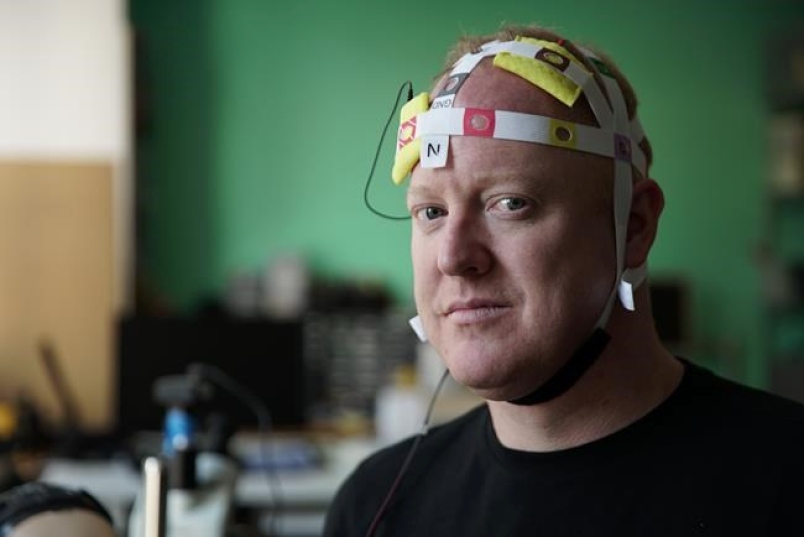
"Futurist" Nikolas Badminton, shown in a handout photo, is shown in a scene from the documentary film "Smart Drugs," as he experiments with various supplements and drugs, also called nootropics, through a hectic work schedule. THE CANADIAN PRESS/HO VANCOUVER — Toronto filmmaker Ann Shin was so intrigued by an animator’s tales about doing some of his best work with the help of "smart drugs" that she wanted to learn how they would work if someone tried them as part of a months-long experiment. She recruited Nikolas Badminton, who was then based in Vancouver and calls himself a "futurist" who speaks and writes about trends, to take on the task in California’s Silicon Valley, the epicentre of a subculture known for using smart drugs, or nootropics. Badminton spent five months working a hectic schedule and popping pills and powdered mixtures used by tech types aiming to enhance cognitive function as they power through projects, ward off sleep and seemingly operate like machines. His journey, punctuated by long bursts of energy and sheer exhaustion, is captured in "Smart Drugs," airing Sunday on the Documentary Channel. Badminton, whose sleep is disrupted while he’s on the regimen, is monitored by a doctor through the so-called biohacking adventure that has him meeting "Brain Bro," who swallows handfuls of pills to try and keep up with the pressure to produce. The word "nootropics" is used to market certain supplements sold online in Canada that claim to help with focus and increase energy. Some medications are also referred to by biohackers as nootropics, for instance Adderall and Ritalin, which are commonly used to treat attention deficit hyperactivity disorder, or modafinil, typically prescribed for narcolepsy. Prescription drugs are often obtained from patients who take them for those reasons under a doctor’s supervision. Shin said she knows of […]
Smart drugs a dumb idea?
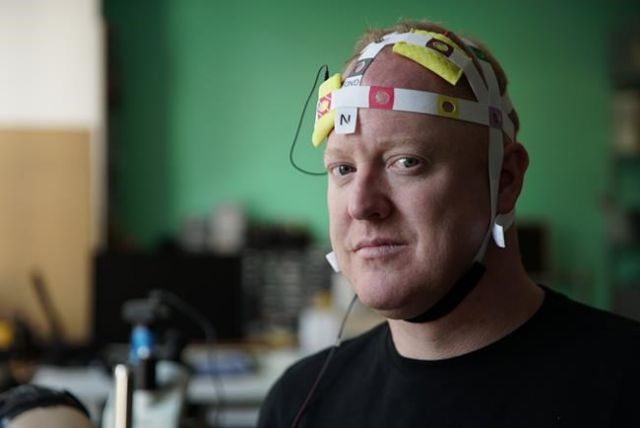
Nikolas Badminton Toronto filmmaker Ann Shin was so intrigued by an animator’s tales about doing some of his best work with the help of "smart drugs" that she wanted to learn how they would work if someone tried them as part of a months-long experiment. She recruited Vancouver "futurist" Nikolas Badminton to take on the task in California’s Silicon Valley, the epicentre of a subculture known for using smart drugs, or nootropics. Badminton spent five months working a hectic schedule and popping pills and powdered mixtures used by tech types aiming to enhance cognitive function as they power through projects, ward off sleep and seemingly operate like machines. His journey, punctuated by long bursts of energy and sheer exhaustion, is captured in "Smart Drugs," airing Sunday on the Documentary Channel. Badminton, whose sleep is disrupted while he’s on the regimen, is monitored by a doctor through the so-called biohacking adventure that has him meeting "Brain Bro," who swallows handfuls of pills to try and keep up with the pressure to produce. The word "nootropics" is used to market certain supplements sold online in Canada that claim to help with focus and increase energy. Some medications are also referred to by biohackers as nootropics, for instance Adderall and Ritalin, which are commonly used to treat attention deficit hyperactivity disorder, or modafinil, typically prescribed for narcolepsy. At the end of Badminton’s nootropics experiment, a doctor in the documentary suggests other ways that the self-described workaholic could extend his output and maintain good health — such as yoga, meditation, and exercise. Badminton said in an interview that he’d tried some nootropics about five years earlier but stopped because he was having lucid dreams. However, he said he now takes two nootropics for short periods during busy work schedules and exercises as he […]
Elevator pitch: Ārepa
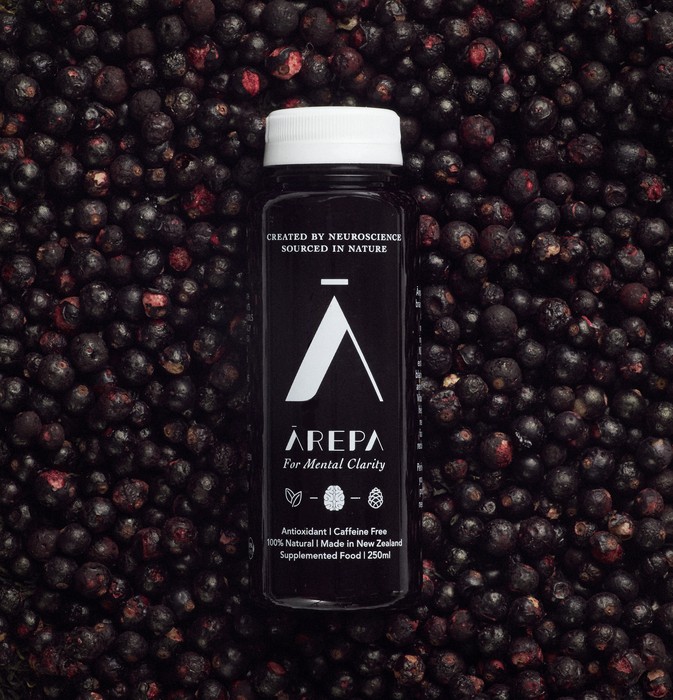
Elevator Pitch, brought to you by Flick We gave Angus Brown a little longer than an elevator ride to pitch Ārepa, a caffeine-free mental clarity drink that has ingredients derived from New Zealand-sourced pine and blackcurrants. While coffee is most humans’ vice of choice for increased mental performance, we all can agree that it has its downsides. Once you’re in a couple of coffees deep, the caffeine-driven energy boost often gives way to less desirable side effects, such as jitters, a fast-beating heart and other anxious tendencies. Meanwhile, the alternative – energy drinks – aren’t exactly packaged up in the healthiest way, considering they contain large amounts of sugar and preservatives. This gap in the market for a drink that increases mental performance without any of the unwanted consequences is where the idea for Ārepa (alpha in Māori) was born. Co-founder Angus Brown says it sparked from him working for a large multinational energy drink company, but not being fond of selling caffeine and sugar to improve cognitive performance. “I lost a couple of grandparents to brain-related illness, and from there I also saw friends and family struggle with anxiety and stress, so I thought, ‘Surely we can make something that’s good for you and good for your brain’,” Brown says. “Caffeine and energy drinks make you more alert, but don’t do anything for anxiety and stress levels – they exacerbate stress rather than helping manage it.” Ārepa is intended to be a focusing-yet-calming drink for people to consume to improve cognition functions before a stressful task, be it a social situation, public speaking event, or a sports competition. It consists of a patented formula that uses New Zealand plant extracts of blackcurrants and pine bark, enzogenol (often used as a natural alternative for Ritalin), L-theanine (an amino acid […]
The hip breathing trick that helps your hippocampus remember better

A couple of weeks ago I wrote about the IMST breathing exercise. In case you missed it, IMST can improve blood pressure and ease sleep apnea in just five minutes a day . In the old days, you’d have to put in 30 minutes of aerobic exercise to get results like that. Well, hold on to your hat because the power of breathing doesn’t stop there… I seem to “lose” my keys more frequently. I tell my husband with confidence that I’m not the one who had the remote control last when it’s sitting right next to me. I keep telling myself that there has to be an easy solution to the problem and luckily there is. If you’re experiencing your fair share of senior moments, too, researchers at the Karolinska Institutet in Sweden have discovered a breathing technique that can boost your brain’s memory center… In through your nose and out through your mouth If you’ve ever practiced meditation, you’re familiar with nasal breathing — the old “in through your nose and out through your mouth.” And, it turns out it’s beneficial for more than just relaxation. It actually helps you better consolidate, reinforce and stabilize your memories. In the Swedish study, reported in the Journal of Neuroscience , the researchers had participants learn twelve different smells on two separate occasions. They were then asked the participants to either breathe through their noses or mouths for one hour. When the time was up, the participants were presented with the old smells as well as a new set of twelve smells and asked to say if each one was from the past learning session or new. And, guess what… When the participants breathed through their noses between the time of learning and recognition, they remembered the smells better. And, […]
Your desk job wreaks havoc on your body, here’s how to fix it
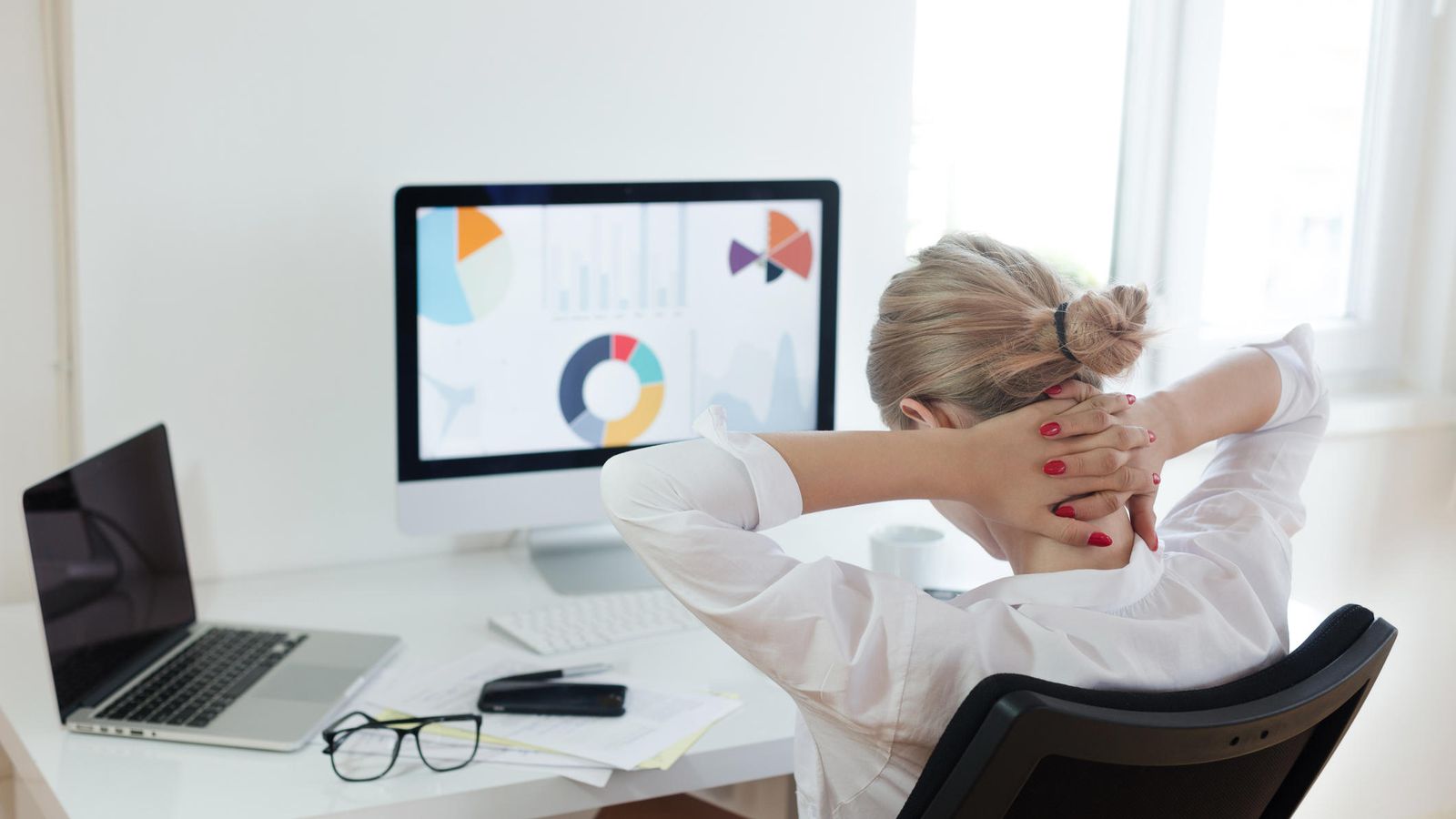
Since 1960 , the percentage of physical activity at work has decreased by about 30 percent, largely due to the increase in office jobs that require sedentary work. We know that sitting is linked to health complications such as weight gain and increased risk of heart disease. In fact, one study even purports that people who exhibit sedentary behavior are more likely to die early . If you work in an office, chances are you spend more time there than you do at home, if you don’t count sleep . If you don’t optimize the place you spend 40-plus hours each week, you can’t really expect healthy habits to spill over into the rest of your life. And if you work from home, it’s even more critical to set up a workspace that’s conducive to healthy workplace habits, because an at-home workspace presents a unique set of challenges (like your couch calling your name just a few feet away). Here are five ways to stay healthy and comfortable at work. Protect your eyes If you’re like the average office worker, you spend about 1,700 hours per year in front of a computer screen, not counting the hours you spend scrolling on your cell phone, watching TV or looking at other devices. That’s a frightening statistic considering that the blue light emitted from our screens is associated with blurry vision, dry eye, sleep disorders and headaches. One way to deal with blue light exposure is to get blue light blocking glasses. They use filters to block or absorb blue light before it makes contact with your eyes. Wearing them throughout your work day may reduce eye strain, ward off headaches and result in a better night’s sleep. Blue-light blocking glasses from brand Felix Gray. Create visual resting spots Speaking of […]
‘Smart Drugs’ features experiment among those fuelled by need to succeed
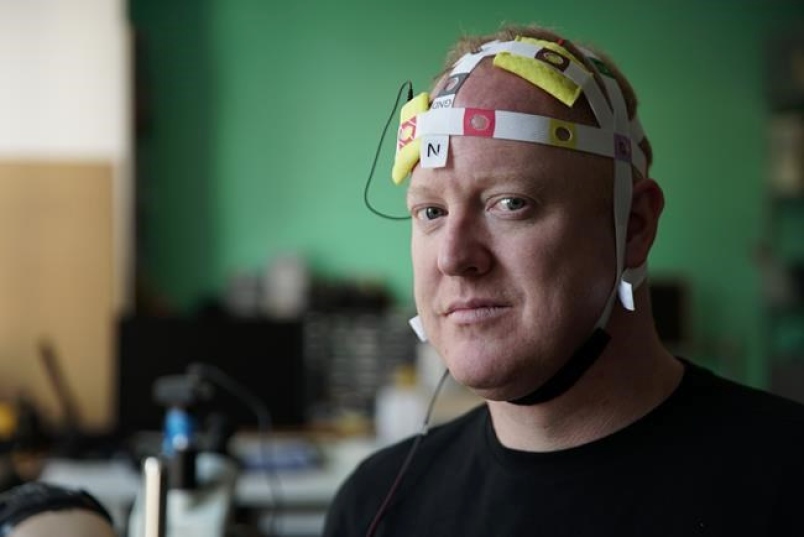
"Futurist" Nikolas Badminton, shown in a handout photo, is shown in a scene from the documentary film "Smart Drugs," as he experiments with various supplements and drugs, also called nootropics, through a hectic work schedule. THE CANADIAN PRESS/HO VANCOUVER — Toronto filmmaker Ann Shin was so intrigued by an animator’s tales about doing some of his best work with the help of "smart drugs" that she wanted to learn how they would work if someone tried them as part of a months-long experiment. She recruited Nikolas Badminton, who was then based in Vancouver and calls himself a "futurist" who speaks and writes about trends, to take on the task in California’s Silicon Valley, the epicentre of a subculture known for using smart drugs, or nootropics. Badminton spent five months working a hectic schedule and popping pills and powdered mixtures used by tech types aiming to enhance cognitive function as they power through projects, ward off sleep and seemingly operate like machines. His journey, punctuated by long bursts of energy and sheer exhaustion, is captured in "Smart Drugs," airing Sunday on the Documentary Channel. Badminton, whose sleep is disrupted while he’s on the regimen, is monitored by a doctor through the so-called biohacking adventure that has him meeting "Brain Bro," who swallows handfuls of pills to try and keep up with the pressure to produce. The word "nootropics" is used to market certain supplements sold online in Canada that claim to help with focus and increase energy. Some medications are also referred to by biohackers as nootropics, for instance Adderall and Ritalin, which are commonly used to treat attention deficit hyperactivity disorder, or modafinil, typically prescribed for narcolepsy. Prescription drugs are often obtained from patients who take them for those reasons under a doctor’s supervision. Shin said she knows of […]
I Tried ‘Smart Coffee’ that Comes in a Pouch…and I’m No Einstein, but Is This the Future of Coffee?
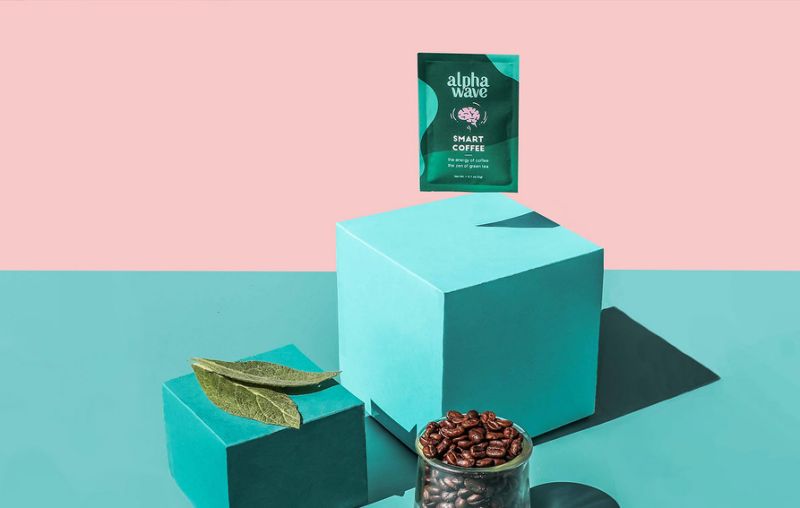
If you’re like me, you imbibe coffee in any and all forms, so long as it makes your eyes open up a little wider and your fingers type a little faster. Folgers, Starbucks, that coffee cart guy in front of the office…My caffeine intake is as indiscriminate as my pizza intake (don’t "at" me, pizza snobs). So when I was pitched a new instant "smart coffee" that comes in a pouch and contains nootropics (a very buzzy word for a group of memory- and focus-enhancing compounds, aka the most 2019 thing ever ) from Brooklyn-based startup Alpha Wave , I had to give them a shot (no pun intended). First, let me reiterate that this is instant coffee (albeit organic and sourced from Colombian Arabica plants, for anyone who cares). The coffee powder comes in a ready-to-mix brown paper packet about twice the size of a Splenda that you pour into whatever caffeine-consumption container you have at your disposal. It looks like cocoa powder, and can be poured into either cold water and given a good stir (for those who prefer the iced coffee variety), or boiling water (for those who hate summer). For my cold brew version (I know it’s not cold brew), I added a splash of coconut creamer and a dash of cinnamon (yep, I’m a big chai tea fan). I was all like "hey, this is super easy." While the taste takes a little getting used to (it’s still got a bit of that acidic bitter taste that comes with hot coffee that’s trying to disguise itself as cold), I had no major qualms. Disclaimer: I didn’t try the hot version, so no word on whether the heat does something funky to the taste (though, I doubt it). Another disclaimer: I’ve given at-home iced coffee […]
Know everything about Turmeric Tea: Benefits & Preparation
Turmeric is an herbal remedy that is being used since thousands of years. Turmeric tea boasts many health benefits due to the high amounts of vitamins, minerals and nutrients present in it. The major benefit is from curcumin – an extremely potent antioxidant that is connected to a number of health benefits. Turmeric is a bright yellow-orange coloured powder. It is commonly used in curries and sauces. Turmeric has a unique but subtle flavour. It has been used widely for its medicinal, antioxidant and anti-inflammatory properties. Turmeric Turmeric Tea Benefits: Fights Inflammation The presence of curcumin in turmeric helps to reduce pain and fight inflammation. It is the best option for people with arthritis. Pain and aches throughout the body can be cured with turmeric tea. Curcumin eliminates inflammation by neutralizing free radicals and preventing oxidative stress. Helps in Weight Loss Turmeric tea stimulates the metabolism and helps in losing weight. It is one of the best natural ways to lose weight. A cup of turmeric tea every day can help you get back in shape. You can now burn fat in a healthy way. Turmeric Tea Helps to prevent Cancer Curcumin present in turmeric acts as an anti-cancer agent. It supresses the growth and proliferation of cancer cells. The antioxidant properties of curcumin reduce swelling and inflammation that are often associated with cancer. Furthermore, curcumin makes chemotherapy more effective. The National Cancer Institute has recognized curcumin as an effective anticarcinogen. Treats Alzheimer’s Alzheimer’s disease affects the brain by inducing inflammation and oxidative damage. Curcumin plays an effective role in treating this. It also improves memory and mood. Research also shows that it can prevent the accumulation of amyloids, which reduce the synaptic marker loss. It prevents the damage to the brain cells. Treats Alzheimer’s Good for Digestive Health […]
Prebiotic vs Probiotic: What’s the Difference and Why Are They Important?
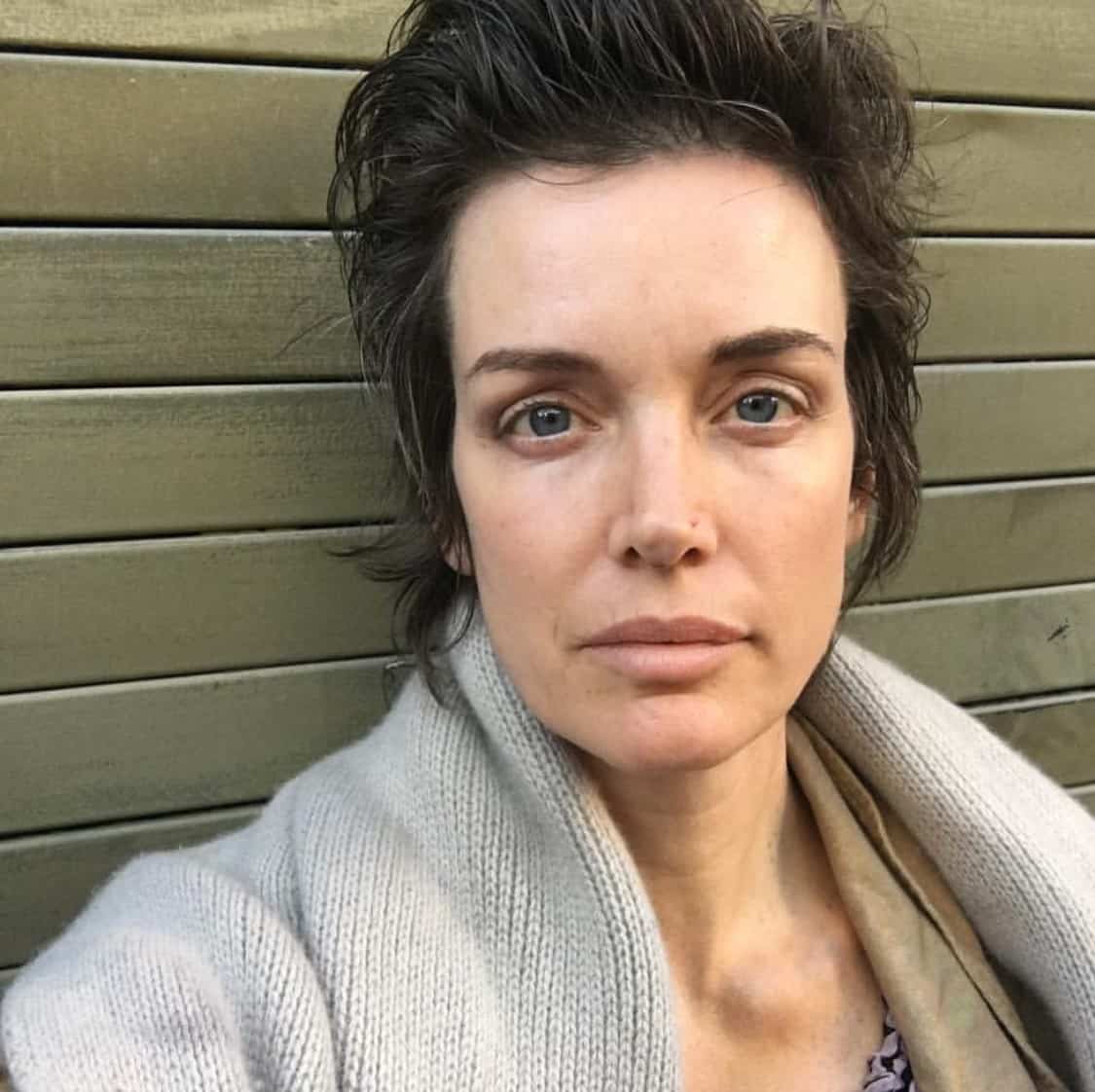
Many people find the prebiotic vs probiotic argument very confusing. They sound like they should be the same thing – but they’re not! Each has a very different but very important function in the gut, and both should be consumed daily to maintain good digestive health. Probiotic vs Prebiotic What Are Probiotics? To understand the difference, consider the prefix: PRO and PRE. The term “pro-biotics” literally translates as ‘for life’. That’s because probiotics help to promote good health! The official definition of probiotics from the World Health Organization is: [1] “live microorganisms that, when administered in adequate amounts, confer a health benefit on the host”. This simply means that probiotic bacteria live in your gut, helping to break down food that you eat and helping your body to absorb nutrients and enzymes. Unsurprisingly, this supports overall health. Things that disrupt your levels of good bacteria include age, genetics, certain medications, alcohol and diet. Dysbiosis results when pathogens and yeast overwhelm the good bacteria and spread throughout your intestinal tract. This has been linked to intestinal diseases such as ulcerative colitis, irritable bowel syndrome, celiac disease, and Crohn’s disease. It’s easy to source probiotics from food or supplements. Probiotics are naturally present in foods such as yoghurt, kimchi, sauerkraut, miso and various pickled products. For convenience, you can also take probiotics in pill form. What Are Prebiotics? Prebiotics, on the other hand, means “before life” – because they are the food for your good bacteria! Prebiotics are a type of fiber that humans can’t digest. They actually belong to a group of dietary fiber called oligosaccharides. This group of compounds is in many foods and includes a variety of different non-digestible forms such as fructo-oligosaccharides, inulin and polysaccharides. [2] What this means is that prebiotics pass through your small intestine […]
Is blue light from your cell phone, TV bad for your health?
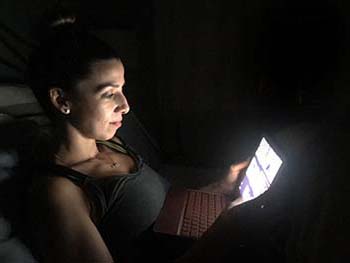
Overexposure to blue light could be hurting your eyes, sleep cycle (SACRAMENTO) — From televisions and smartphones to tablets and gaming systems, most of us are glued to our electronic devices. But is all of that blue light shining from screens harmful to our health? Melissa Barnett , principal optometrist at the UC Davis Eye Center , talks about the effects of blue light and what you can do to reduce the health risk. Using electronic devices at night without adjusting the amoung of blue light that shines from the screen can affect sleep. What is blue light? Blue light is part of the visible light spectrum — what the human eye can see. Vibrating within the 380 to 500 nanometer range, it has the shortest wavelength and highest energy. About one-third of all visible light is considered high-energy visible, or "blue," light. Sunlight is the most significant source of blue light. Artificial sources of blue light include fluorescent light, compact fluorescent light (CFL) bulbs, LEDs, flat screen LED televisions, computer monitors, smart phones and tablet screens. What are the health benefits of blue light? Blue light boosts alertness, helps memory and cognitive function, and elevates mood. It regulates the circadian rhythm, the body’s natural wake and sleep cycle. Sunlight is also important for the growth and development of the eyes and vision in children. Inadequate exposure to blue light can also contribute to the recent increase in myopia , or nearsightedness. Is too much exposure to blue light unhealthy? Blue-light exposure from screens is small compared to the amount of exposure from the sun. However, there is concern about the long-term effects of screen exposure especially with too much screen time and when a screen is too close to the eyes. How is blue light bad for health? […]
‘Smart Drugs’ features experiment among those fuelled by need to succeed
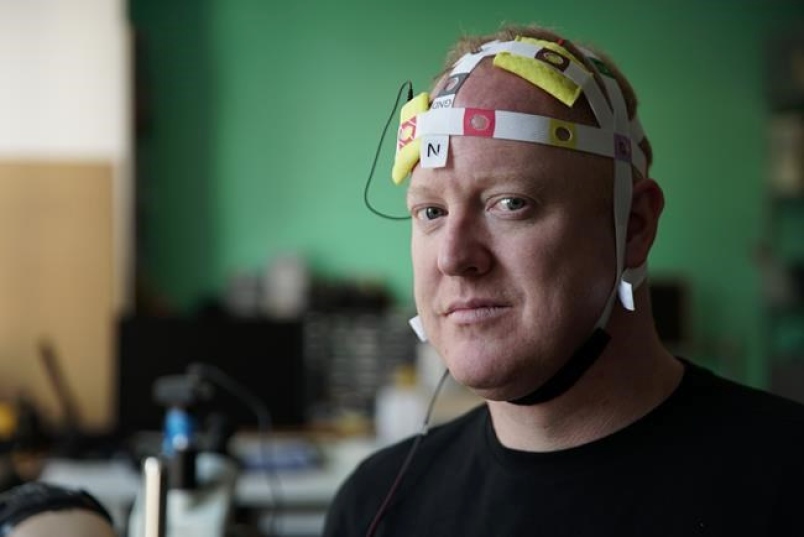
"Futurist" Nikolas Badminton, shown in a handout photo, is shown in a scene from the documentary film "Smart Drugs," as he experiments with various supplements and drugs, also called nootropics, through a hectic work schedule. THE CANADIAN PRESS/HO VANCOUVER — Toronto filmmaker Ann Shin was so intrigued by an animator’s tales about doing some of his best work with the help of "smart drugs" that she wanted to learn how they would work if someone tried them as part of a months-long experiment. She recruited Nikolas Badminton, who was then based in Vancouver and calls himself a "futurist" who speaks and writes about trends, to take on the task in California’s Silicon Valley, the epicentre of a subculture known for using smart drugs, or nootropics. Badminton spent five months working a hectic schedule and popping pills and powdered mixtures used by tech types aiming to enhance cognitive function as they power through projects, ward off sleep and seemingly operate like machines. His journey, punctuated by long bursts of energy and sheer exhaustion, is captured in "Smart Drugs," airing Sunday on the Documentary Channel. Badminton, whose sleep is disrupted while he’s on the regimen, is monitored by a doctor through the so-called biohacking adventure that has him meeting "Brain Bro," who swallows handfuls of pills to try and keep up with the pressure to produce. The word "nootropics" is used to market certain supplements sold online in Canada that claim to help with focus and increase energy. Some medications are also referred to by biohackers as nootropics, for instance Adderall and Ritalin, which are commonly used to treat attention deficit hyperactivity disorder, or modafinil, typically prescribed for narcolepsy. Prescription drugs are often obtained from patients who take them for those reasons under a doctor’s supervision. Shin said she knows of […]
Smart Drugs documentary reveals experiment among those fuelled by need to succeed
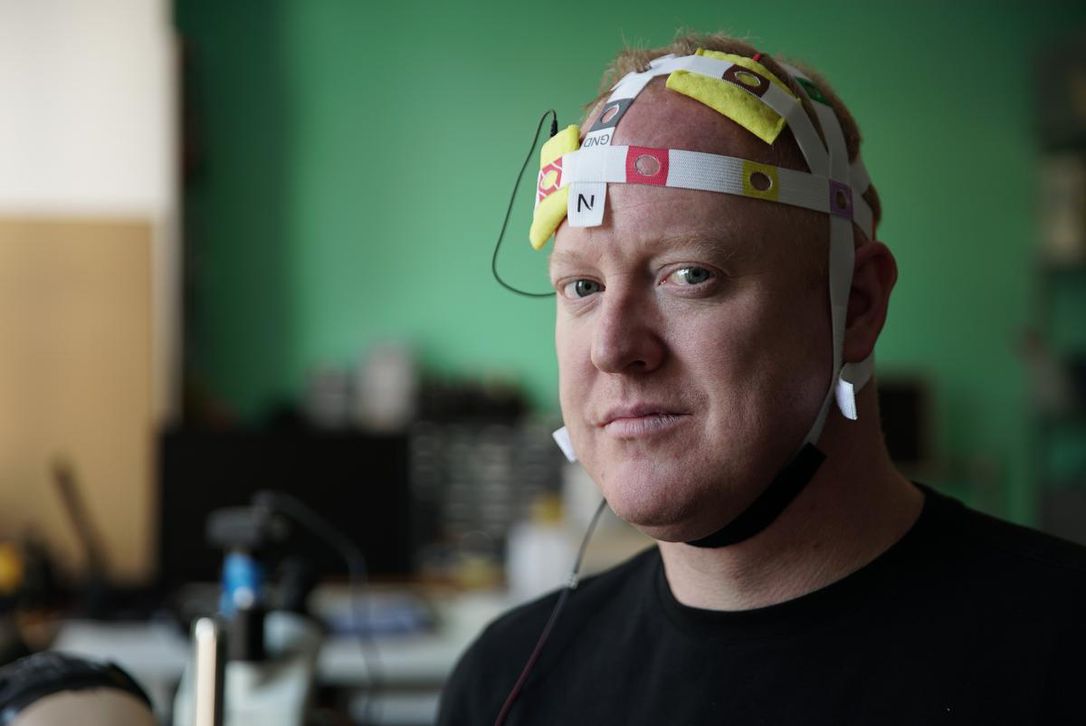
VANCOUVER—Toronto filmmaker Ann Shin was so intrigued by an animator’s tales about doing some of his best work with the help of “smart drugs” that she wanted to learn how they would work if someone tried them as part of a months-long experiment. She recruited Nikolas Badminton, who was then based in Vancouver and calls himself a “futurist” who speaks and writes about trends, to take on the task in California’s Silicon Valley, the epicentre of a subculture known for using smart drugs, or nootropics. “Futurist” Nikolas Badminton, shown in a handout photo, is shown in a scene from the documentary film Smart Drugs, as he experiments with various supplements and drugs, also called nootropics, through a hectic work schedule. Badminton spent five months working a hectic schedule and popping pills and powdered mixtures used by tech types aiming to enhance cognitive function as they power through projects, ward off sleep and seemingly operate like machines. His journey, punctuated by long bursts of energy and sheer exhaustion, is captured in Smart Drugs , airing Sunday on the Documentary Channel. Badminton, whose sleep is disrupted while he’s on the regimen, is monitored by a doctor through the so-called biohacking adventure that has him meeting “Brain Bro,” who swallows handfuls of pills to try and keep up with the pressure to produce. The word “nootropics” is used to market certain supplements sold online in Canada that claim to help with focus and increase energy. Some medications are also referred to by biohackers as nootropics, for instance Adderall and Ritalin, which are commonly used to treat attention deficit hyperactivity disorder, or modafinil, typically prescribed for narcolepsy. Prescription drugs are often obtained from patients who take them for those reasons under a doctor’s supervision. Shin said she knows of a mother who uses […]
7 Things We Can Do To Protect and Enhance the Aging Brain

As women over 60, we can’t ignore the fact that age is taking a toll on our brains. Words and names become more elusive. Misplaced items become more common. Our friends start repeating things they told us just days ago. So what can we older women do to protect or improve our brain function? Plenty, according to Dr. John Medina , a developmental molecular biologist, natural storyteller and the author of Brain Rules for Aging Well . He shares his scientifically-supported insights with Margaret Manning in today’s delightfully tongue-in-cheek video interview. The Usual Suspects: Diet and Exercise After an extensive review of the scientific data, Dr. John is convinced that a Mediterranean diet is the only truly brain-healthy one. As he puts it, “Eat sparingly, plant-based foods.” Chow down on fresh veggies, fruits and nuts. Get your proteins from fish or chicken and your fat from olive oil. Don’t, however, marry this or any diet; it’s fine to cheat once in a while. In fact, cheating may be essential for your emotional well-being. Who sticks with a diet of constant deprivation? As to exercise, forget everything you’ve heard about the brain benefits of strengthening exercise. Stick with moderate aerobic activity, such as brisk walking. Think 5,000 steps per day for brain health; double that for weight loss. Decentering Techniques Decentering is the practice of shifting your focus to somebody else’s world so that you can stop thinking about the problems in your own. To significantly reduce your risk of all-cause mortality, try decentering through one or more of the following techniques: Sitting Down with a Good Book Reading first-rate literature in the form of paper, audio or single-use e-reader books is a most pleasant ways to decenter. But it has to be exceptional literature! Think J.R.R. Tolkien’s Lord of […]
Why Sports And Extracurricular Activities Are Important In Growing Years?

Studies have shown that exercise increases blood flow to the brain and helps the body build more connections between nerves, leading to increased concentration, enhanced memory, stimulated creativity, and better-developed problem-solving skills. In short, playing sports helps your brain grow faster and helps it work better. 5 reasons why every student should get involved in sports Improves Concentration. Sports help you to focus better in every field of life. When you learn to balance that tiny ball on a table or that shuttle over the court, you can train your brain accordingly to act in everything you do. Time Management. ‘These 70 minutes of your life, final 70 minutes of your game’ When you know the importance of the time, every task is a cake walk. If it comes to studies we all know– Time management is the key to good grades. No fear of failure. Winning and losing is a part of any game that you play and when you learn to accept failure in life- be it studies or games, success comes to a step closer to you because you are not afraid to give it a try. Increased Confidence level. When you are not afraid to lose, your energy level is different from the rest of the crowd, hence helping you feel satiated with self-esteem and then no task is impossible for you. Sound Mind dwells in a sound body. When you are fit, ailments are at a bay that means more attendance and higher grades. When health supports you, you perform better. Words of motivation : For some students, sports can provide motivation for improved academic performance. Not all athletes are natural students. However, the grade requirements to stay eligible and play the sport they love drives them to overcome obstacles in the classroom and […]
Citicoline Sales Driven by Supplement Demand from Geriatric Population and eSports Players: Study

Fact.MR The citicoline market was valued at over US$ 530 million in 2018 and is expected to witness substantial Y-o-Y growth of 8% in 2019. According to a recent research by Fact.MR, the citicoline market is estimated to surpass US$ 550 million in 2019. Citicoline demand is driven by a range of factors, notably increasing geriatric population and growing use among eSports players. The study offers in-depth and incisive insights on key factors influencing the global demand for citicoline. Supplement Consumption Among eSports Players: A Lucrative Opportunity Growing popularity and increasing investments in eSports is helping the market go mainstream which, in turn, is opening an assortment of opportunities for various industries. Players participating in eSports tournaments are seeking cognitive enhancing supplements which can help them concentrate, plot strategies, and improve working memory. Additionally, a ban on the use of other nootropics such as Ritalin and Adderall in eSports leagues is creating demand for ‘permissible’ supplements. Citicoline’s negligible toxicity and its organic nature is making it an appealing prospect for eSports players. With regulations allowing the use of citicoline in functional food and supplements, manufacturers are increasingly focusing towards including the compound in their products to capitalize on the bolstering demand for cognitive-enhancing supplements in eSports. Request For Sample Report- www.factmr.com/connectus/sample?flag=S&rep_id=2868 Citicoline’s Role in Ischemic Stroke Treatment Creating Opportunities The adverse and often fatal impact of ischemic stroke on human health, coupled with increasing prevalence is bolstering demand for effective treatment of the condition. According to WHO, stroke is the second leading cause of death in the world and the third leading cause of disabilities in adults. Additionally, the lack of a standard procedure of treatment for different ischemic stroke patients is influencing healthcare researchers to focus on the development of acute therapy for all patients. According to Fact.MR’s […]
The bigger the waistline, the smaller the brain? Shocking new research links obesity to less gray matter
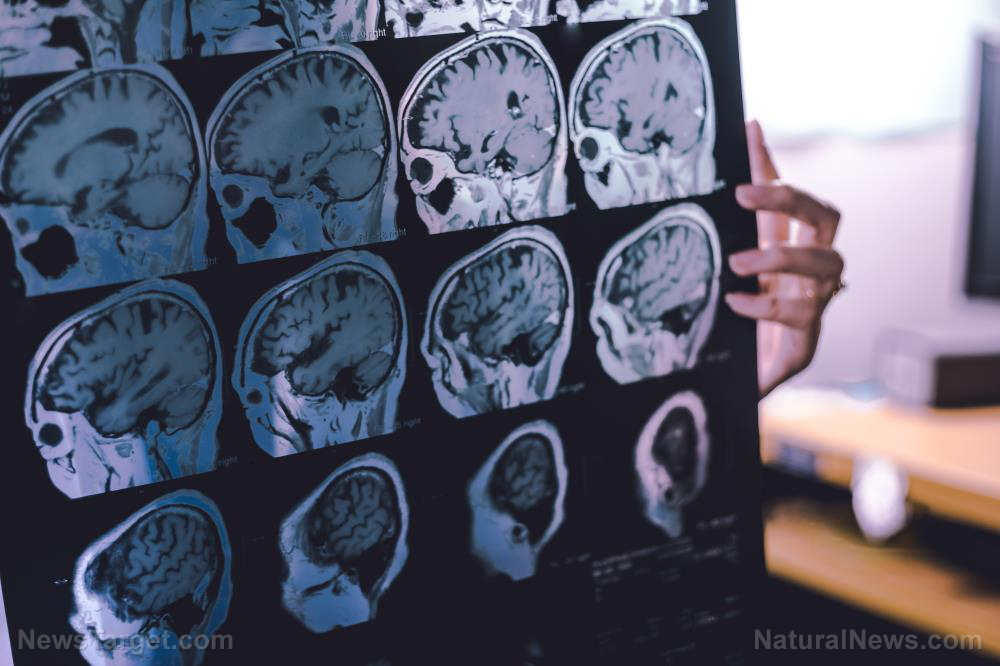
( Natural News ) Excess body fat is a sign that more serious health issues are en route. Several studies show that obesity is a precursor to diabetes, heart disease, arthritis, and cancer. Now, a shocking new study links obesity to less gray matter . As the brain shrinks, a person becomes at greater risk for serious conditions such as dementia. This is terrible news for a majority of people living in the United States. About 75 percent of adult males and 60 percent of adult females fall into the overweight or obese category. What they don’t know is that their brain is getting smaller, not because of age, not because of genetics. The research, published by the American Academy of Neurology , compared body mass index (BMI), waste-to-hip ratio, and total fat mass, with the MRI brain scan of 9,652 people. Out of this cohort, nineteen percent were either overweight or obese. According to MRI scans of this group, those with the greatest BMI and waist-to-hip ratio also had the lowest gray matter volume. The researchers adjusted for other factors that affect brain mass, including physical activity levels, high blood pressure, smoking, and age. The study concluded, “The combination of heightened BMI and WHR may be an important risk factor for gray matter atrophy.” When the orbitofrontal cortex shrinks, a person becomes more impulsive; this can lead to a downward spiral of uncontrolled eating habits. As the fat builds, the excess fat cells also release hormones that trigger inflammation. This inflammation further hinders the brain cells, impairing memory. Staying in shape and protecting the brain cells are equally important The gray matter of the brain contains most of the nerve cells. These nerve cells are associated with things like physical movement, coordination, and self control. The cause and […]
Eating Dark Chocolate and Its Effects on the Brain
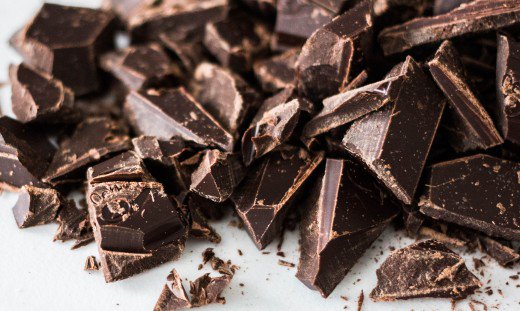
Source Getting to Know Dark Chocolates More This article tackles the significance of dark chocolate in improving human brain health. Among its many benefits are the following effects: Reduction of neurodegenerative illnesses Improvement of mood and performance in cognitive tasks Contains high antioxidant levels The Origin of Chocolates: A Brief History During the 15 th century, ancient Mayan and Aztec civilizations of Central America drank finely ground bitter cacao beans mixed with hot water and chilies. These civilizations also used the same beans as a currency in trading raw materials. When Christopher Columbus was on his last journey to the New World, he came across a canoe with agricultural products which included cacao beans. He then brought these beans to Spain where people grew fond of its rich taste. With such popularity, the cacao beans were consumed in different ways (Kuwana, 2010). Source What is a Chocolate? Cacao beans serve as the major ingredient of chocolates. These are the seeds of Theobroma cacao plant that have gone through drying and fermentation. According to Bennion, Bent, and Bamford (1997), “Chocolate may be defined as a mixture of toasted cocoa beans and sugar ground down to a very fine particle size with or without the addition of butter.” It contains about 400 chemicals that can be grouped into fats, flavonoids, amino acids, and methylxanthine. A chocolate’s fat content is comprised of oleic acid, stearic acid, and palmitic acid. Its flavonoids have flavanols and polyphenols. Tryptophan, phenylethylamine, anandamide, tyrosine, dopamine, and monoamine oxidase inhibitors form its set of amino acids. Its methylxanthine component has theobromine and caffeine (Arndt, 2009). How Chocolates are Made The cocoa beans undergo different processes for manufacturing chocolates. Initially, the cocoa beans are roasted to make the bean shells brittle. Later, the cocoa beans are transferred to a […]
5 Foods That Improve Memory And Focus
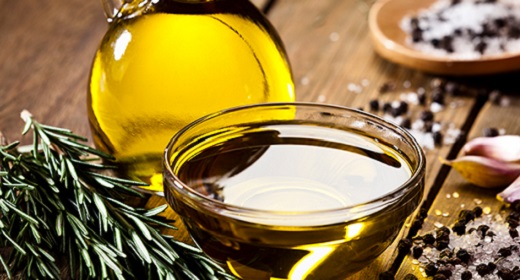
by Lauren Venosta : What would your life be like if you had a spectacular memory and could remember everything you ever read, heard, or saw? That is not reality. With so many distractions, it’s easy for your mind to wander and lose focus, which can also be called “brain fog.” Because of that, you become forgetful. But what if your short- and long-term memory and overall brain health were something you could improve? With the rising rates of dementia and Alzheimer’s disease, it’s more important than ever to keep your brain and memory strong. It’s documented that more than 50 million people worldwide suffer from dementia, and it’s projected to rise to 82 million by 2030. In the United States, 5.7 million people are estimated to be living with dementia, and 60 percent to 70 percent of those cases are Alzheimer’s. Those are staggering numbers. Don’t you want to do everything you can to improve your memory and protect yourself? Some Foods and Drinks to Limit or Avoid Before diving into the foods that improve memory and concentration, let’s quickly chat about foods to avoid. In Dr. David Perlmutter’s book Grain Brain , he writes that gluten, processed carbs, and sugars are wreaking havoc on the brain. He explains, with scientific evidence , that these foods can contribute to something as simple as a basic headache or full-blown Alzheimer’s disease. Did you ever think your daily morning scone could be the reason you are forgetful as you age? Or your sugar-laden coffee drink? Consuming too much alcohol can lead to short-term memory loss and blackouts, which you may know if you’ve ever had one too many drinks. But heavy drinkers are much more likely to experience memory loss in the long term. Keeping the alcoholic beverages to a […]
“Smart drugs” and cold therapy: How I’m biohacking my body to be smarter and healthier
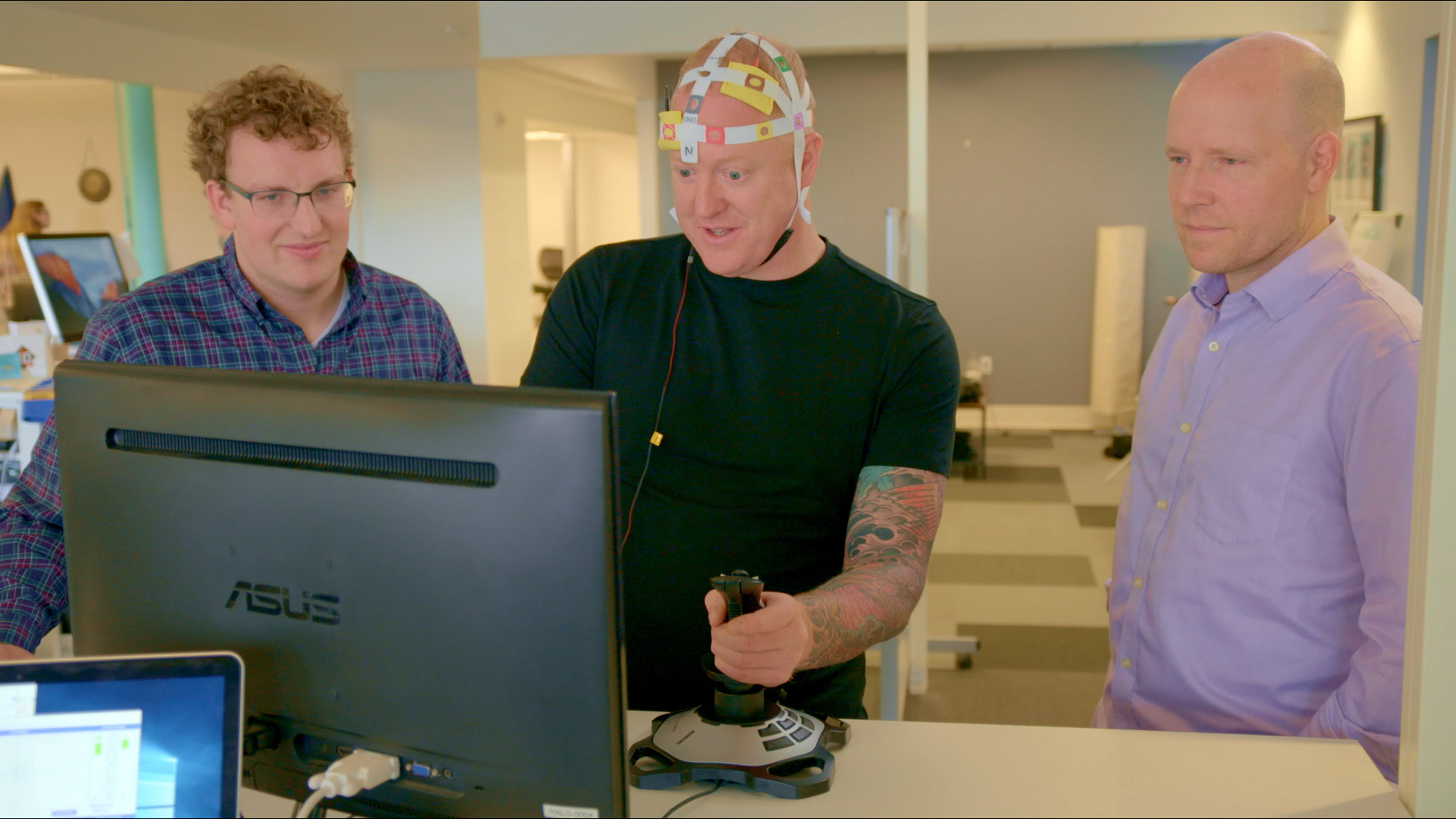
I’ve always worked hard. Throughout most of my 23-year career, putting in the hours and jet-setting around the world, it’s seemed like I’ve had unlimited energy and stamina. I aim to live life to the fullest. But things kicked into a higher gear in late 2015 when I quit my well-paid executive job at a software company to pursue a career as a futurist. Until then, thinking about the future and running conferences had been a side project, so I spent the next year building up my new career by writing articles, making media appearances, speaking here and there, and planning my events, Future Camp and Dark Futures, in Vancouver. By 2017 my career caught fire: 60-plus keynote speeches meant lots of global travel and spending countless hours in hotels, taxis and speaking venues, with zero balance in my life at all. I became a workaholic with no time for exercise, friends, a relationship or even to focus on myself. “Make hay while the sun shines,” is the old adage, but they forget to tell you that even farmers manage to get some sleep. I was caught in a vicious cycle of work, travel, burn out, recover — week in and week out. But I kept pushing myself forward because that’s what I had always done. Then, one day, my hectic lifestyle finally took its toll on my body. On a dark evening in December, I was due to meet a friend but started feeling unwell, so I decided to head into my local pharmacy. I strapped myself into a blood pressure machine and the numbers seemed alarmingly high. When I called 811, a local health hotline, to make sense of it, they told me to head to the closest hospital. The work schedule and resulting burnout had brought […]
Yes, You Can Grow More Brain Cells
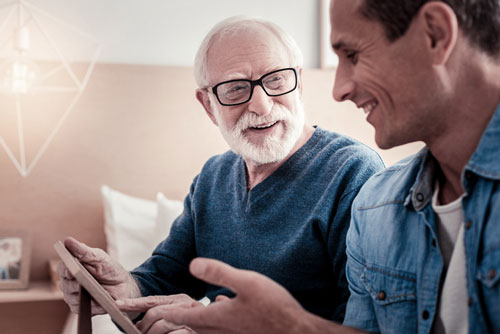
You’ve probably heard this scientific “fact”: You cannot grow new brain cells. Once they die because of injury, disease, or age, brain cells are lost forever. It’s a depressing thought. Fortunately, it’s completely wrong. In 1999, scientists confirmed that adult human neurogenesis is possible. Neurogenesis is the creation of new neurons or brain cells. [1] This discovery had a profound effect on the field of neurology. For the first time, it was proven that your brain power does not automatically diminish as you grow older. You can build your brain, just like you can make your muscles grow. And now, new research shows that even extremely elderly people can grow a bigger, stronger brain. The study was published in the journal Nature Medicine . Scientists removed slivers of the hippocampus from people who had recently died. That’s an important region of the brain involved in storing memories. It’s one of the brain areas damaged by Alzheimer’s. [2] The researchers examined the brain tissue under a microscope. They found many examples of hippocampus cells that contained the protein doublecortin. The presence of doublecortin indicates that the cells were in the early stages of development. In other words, they were new brain cells. These new cells were found in the brains of people who were as old as 87. But the brains of people who had died from Alzheimer’s had very few cells with doublecortin. That suggests Alzheimer’s patients lose their ability to create brain cells. The study shows that under normal, disease-free circumstances, even people of advanced age can develop new neurons in one of the most important regions of the brain. Make Your Brain Younger There are ways you can promote neurogenesis in your brain to become mentally sharper, improve your memory, and stave off Alzheimer’s. But you won’t […]
